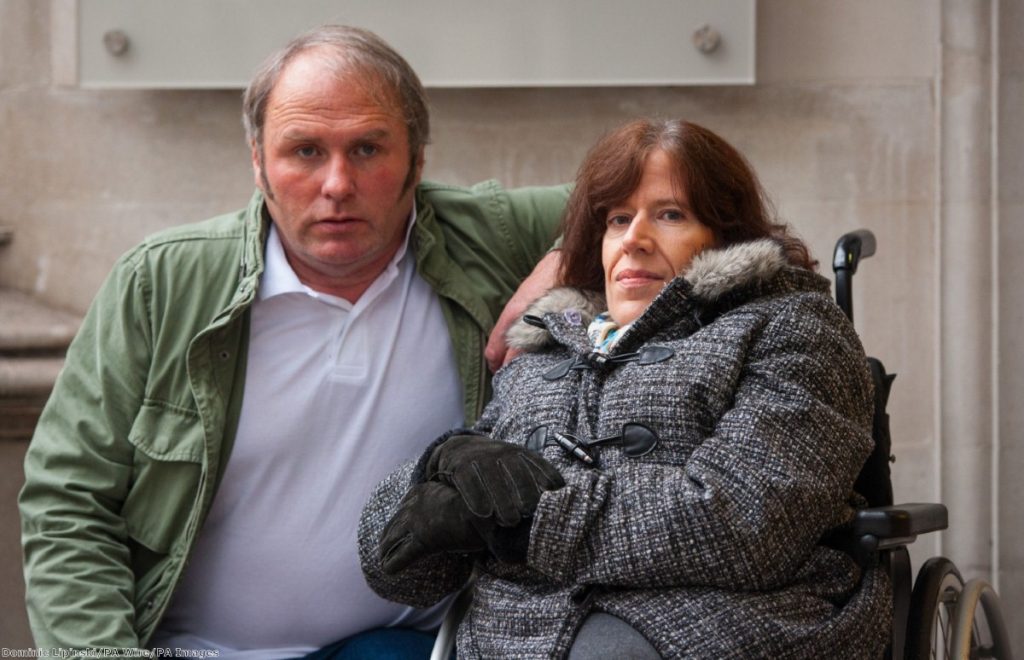The government's attempt to block a legal route which is used by many people to appeal against benefits decisions has been defeated at the Upper Tribunal.
Last month, Politics.co.uk reported that the DWP was using the case of Jayson and Charlotte Carmichael, who successfully challenged the bedroom tax at the Supreme Court, to try to stop other people from relying on the Human Rights Act when bringing a similar appeal.
If the government had been successful, it could have had major implications for future cases.
"It’s an absolute disgrace that disabled families have to put their lives into fighting for human rights in 2017," Jayson Carmichael said today. "We hope our fight, during the election campaign, draws voters' attention to this."


The Carmichael's battle against the bedroom tax began in 2014 when a judge at a first tier tribunal ruled that the policy was in breach of their human rights. The DWP decided to appeal against the decision and around the same time the Carmichaels' separate application for a judicial review of the underlying legislation was dismissed in the high court. That decision was upheld by the Court of Appeal. The couple finally defeated the government in the Supreme Court.
But in a shock move the DWP forced them back to court, arguing that the first tier tribunal only has the power to identify that legislation is incompatible with the Human Rights Act – not to rule on a case on that basis. If the government had been successful, the next best option left available to critics would have been to apply to the high court for a judicial review – a long and expensive process.
Today's judgment found that the first tier tribunal had "arrived at the correct outcome" in this case "but by the wrong route". However it crucially went on to state that tribunal judges do have the right to find against the government if its regulations are found to be in breach of the Human Rights Act.
The Carmichael's solicitor Lucy Cadd, from law firm Leigh Day said:
"Whilst this is a complex legal battle, which has been ongoing for a number of years and has straddled several Courts, the impact of the bedroom tax on people has been clear. We believe this case is further evidence of a government which has little concern for equality."
A spokesperson for the DWP said:
"This case concerns a technical legal issue. Our position is that the tribunal does not have the legal power to make a ruling in this area and we are seeking to appeal its decision.
"Since 2014 we have given local authorities £60m a year in Discretionary Housing Payments for people affected by the RSRS who need extra help, which the claimants in this case were in receipt of."









